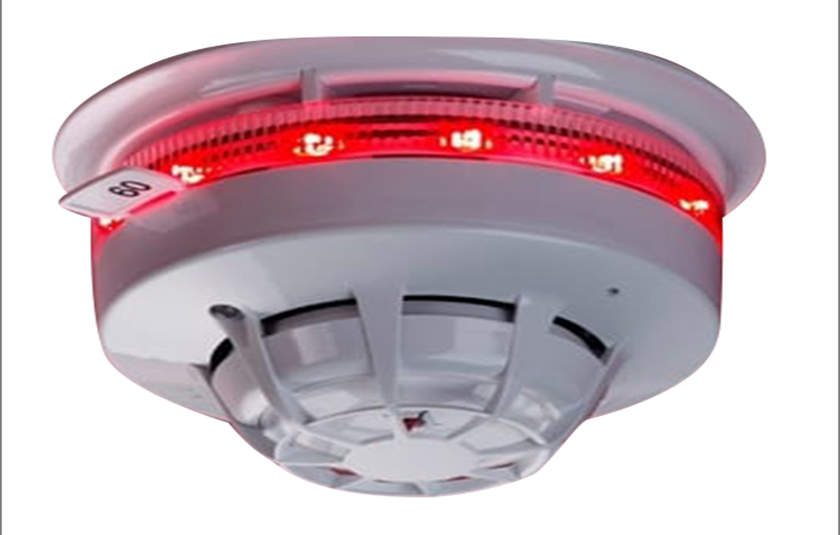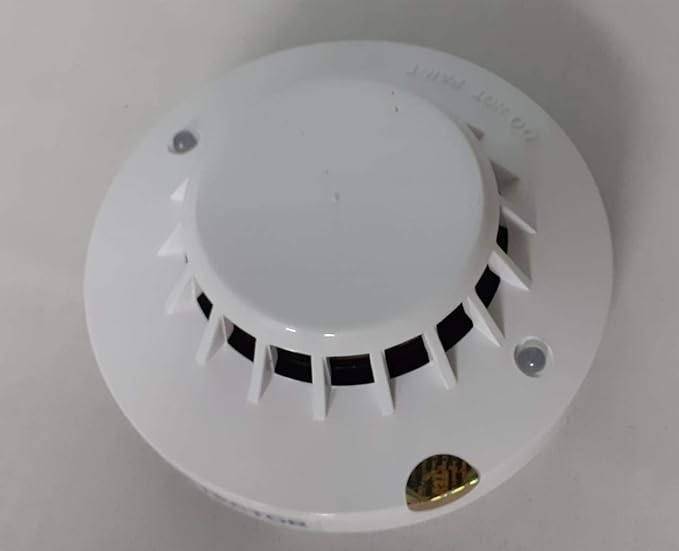Smoke Detector

A smoke detector is a device that senses the presence of smoke, typically as an indicator of a fire, and produces an alarm to alert building occupants to the potential danger. Smoke detectors are crucial components of fire safety systems in homes, commercial buildings, and industrial facilities. Here are some key features and functions of smoke detectors.
Smoke detectors use various methods to detect the presence of smoke or combustion products.These detectors contain a small radioactive source and two electrically charged plates. When smoke enters the detector, it disrupts the electrical current between the plates, triggering the alarm
- Photoelectric Smoke Detectors: Photoelectric detectors use a light beam and a light-sensitive sensor. When smoke particles scatter the light, the sensor triggers the alarm.
- Dual-Sensor Smoke Detectors: These detectors combine both ionization and photoelectric sensing methods for increased sensitivity to different types of fires.
- Combustion Gas and Heat Detectors: Some detectors can sense the presence of combustion gases and increases in temperature, which are indicative of a fire.
Audible Alarms: When smoke is detected, the smoke detector activates a loud audible alarm, alerting occupants to the potential fire hazard. The sound is intended to prompt quick evacuation and contact with emergency services.
Interconnectivity: In many residential and commercial settings, multiple smoke detectors are interconnected. When one detector detects smoke or fire, it triggers all interconnected detectors to sound their alarms simultaneously. This feature helps ensure that everyone in the building is alerted.
Battery or Hardwired: Smoke detectors can be powered by batteries, typically 9-volt or lithium batteries, or hardwired into the building’s electrical system with a battery backup in case of power failure.

Maintenance and Testing: Regular maintenance and testing are essential to ensure the proper functioning of smoke detectors. This includes testing the detector’s alarm, cleaning the device, and replacing batteries or the entire unit as needed.
Placement: Proper placement of smoke detectors is crucial for their effectiveness. They are typically installed in hallways, bedrooms, living rooms, kitchens, and near sleeping areas. They should be placed on ceilings or high on walls to maximize coverage.
Types of Fires Detected: Smoke detectors are primarily designed to detect smoldering fires (slow-burning, low-heat fires) and flaming fires (fast-spreading, high-heat fires) but are most effective in the early stages of a fire.
Integration with Fire Alarm Systems: In commercial and industrial settings, smoke detectors are often integrated with fire alarm systems, which can trigger various responses, such as activating sprinklers or notifying the fire department.
Smoke detectors play a critical role in providing early warning of fires, allowing occupants to evacuate safely and minimize property damage. Compliance with local building codes and maintenance of smoke detectors are essential for fire safety in any setting. These devices are considered life-saving tools and should be an integral part of every building’s fire protection system.
